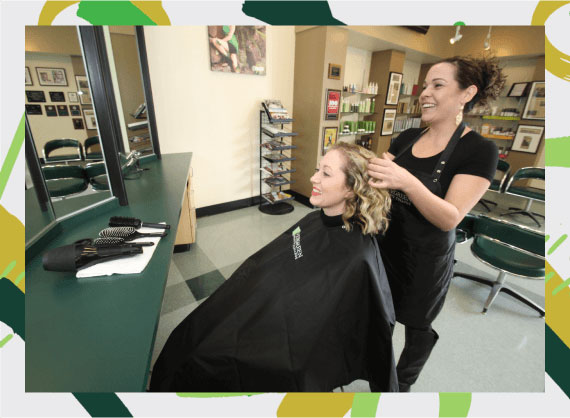How to Transfer Cosmetology Licenses
Cosmetology is a highly competitive field that has great opportunities for licensed cosmetologists. If you want to become a professional cosmetologist, one of the first steps you need to take is to identify a good beauty school that would be able to offer you adequate training to prepare you for a successful career. Unfortunately, cosmetology licensing requirements vary from state to state.
In view of this, it is important to evaluate carefully the license transfer processes of various states before selecting a cosmetology school or starting your career in a particular state.
Understanding Cosmetology Licenses
When you register as a cosmetology in a state and obtain a license to operate within the state, you would not be able to use your license in a different state. Therefore, if you decide to move to another state, you will need to transfer your cosmetology license to your new state. Fortunately, it is relatively easy to transfer cosmetology credentials in most states and some states even offer temporary licenses for cosmetologists who are awaiting the issuance of a new license. With that in mind, here is how to transfer your cosmetology license interstate.
Steps Involved in the Transfer of Cosmetology Licenses
To begin with, conduct a thorough research on the cosmetology licensing requirements in the new state. Some states require more training qualifications in order to register and license cosmetologists. However, all states measure cosmetology training aptitude by the number of hours each candidate spent in beauty school. If you move to a state that requires more training hours than your former state, you need to go back to school and take up more study units to meet the conditions of the new state.
Secondly, establish if the new state has reciprocity laws that can enable you to transfer your license without necessarily having to go back to beauty school.
Reciprocity laws are basically regulations that allow cosmetologists who have a lot of working experience to receive accreditation in states that require more training hours without having to earn more credit hours in school. Most states gauge working experience by calculating the number of working hours one has under his or her belt.
Cosmetology Licenses Differ From State To State
Different states have different minimum working hour limits that cosmetologists must meet in order to qualify for exemption from further training under the reciprocity laws. If you have substantial working experience, it is important to establish the licensing standards of various sates before you move. Moreover, some states do not have reciprocity laws and you may have to incur additional training costs to learn skills that you may already posses in order to meet the training requirements of the new state.
Submitting A Transfer Request
Upon establishing all the legal licensing requirements that you need to meet in order to transfer your licenses seamlessly, the next step is to submit an official request and start the transfer process. All states have cosmetology boards or authorities that deal with accreditation issues. Identify the relevant authority and make inquiries about any documentation you need to provide. Most states will contact your old state and collect information about your training and working hours.
Acquiring Cosmetology Training
Acquiring your cosmetology training in an institution that meets the standards of the new state increases the approval chances of your license transfer request. At Evergreen Beauty College, our beauty care courses meet widely acceptable training standards. In some cases, you may need to provide proof of training such as beauty school certificates. In order to initiate the license transfer process, the new state will also charge a non-refundable transfer fee that varies from state to state.
Finally yet importantly, you would have to sit for a cosmetology exam. Irrespective of whether you are eligible for exemptions provided by the reciprocity laws or not, it is also obligatory, in most states, to complete licensing exams. These exams determine if applicants meet the basic skill level required to practice cosmetology. Upon passing these exams, most states will give you a temporary license while they process the official accreditation papers.
The Importance of Timely Cosmetology Licenses Transfers
If you are a cosmetologist, moving to a new state is likely to be a big challenge since you have to grapple with issues such as loss of income and additional training costs (in some cases). However, with adequate preparation, you can ensure that you are able to start working as soon as possible in the new state. Establish the cosmetology licenses transfer procedures of different states before you move and make arrangements to start the process as soon as you can to avoid major revenue loses.




